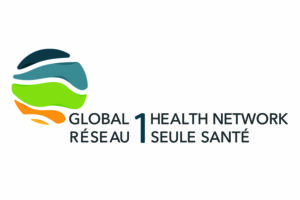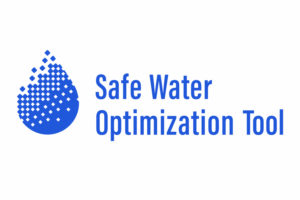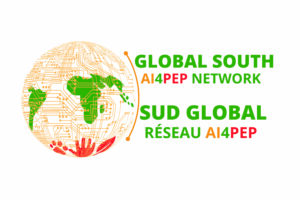Massive Action: Global Health Design
All seminars will be held in person at York University and online via Zoom.
Space is limited. Please register your interest here.
 SEMINAR 1 – PUBLIC SEMINAR
SEMINAR 1 – PUBLIC SEMINAR
Principles of Global Health Design
November 2, 2022 | 3–5 p.m. ET
Join us at this public seminar to learn about Bruce Mau’s vision of global health design. Mau will draw on his MC24 Principles for Life-Centred Design to address caring as the fundamental operating system for global health design.
SEMINAR 2 – CASE STUDY 1
The Partnership for Youth and Planetary Wellbeing
December 7, 2022 | 3–5 p.m. ET
Ecological devastation and climate change are among the world’s most pressing problems, with thousands of youth pitching in to fuel a movement to address the issues. We do not yet understand the size, scope or meaning of the youth movement for planetary health. The Partnership connects new, diverse, intergenerational groups of scholars, youth, trainees, communities and civil societies to:
-
- Map the range, efficacy and gaps in youth-centred practices and policies for youth and planetary wellbeing
- Work with inclusive groups of young people and their communities to record and analyze the impacts on youth wellbeing including their responses
- Leverage our data for co-development with youth of new education to intentionally amplify their knowledge, practices and solutions to advance the UN Sustainable Development Goals
- Evaluate and share new evidence and educational tools with global and local policy and practice audiences who are well placed to make a difference.
More about Young Lives Research
Researchers
Principal Investigator: Kate Tilleczek
Co-Principal Investigators: James Orbinski, Deborah McGregor, and James Stinson
Research team: Felipe Montoya-Greenheck, Debra Pepler, Charles Hopkins, Ana Maria Martinez, Mark Terry, Pablo Aranguiz Mesias, and Deborah MacDonald

SEMINAR 3 – CASE STUDY 2
Designing One Health Governance for Antimicrobial Stewardship
January 18, 2023 | 3–5 p.m. ET
Antimicrobial resistance (AMR) is a problem of the global commons, whose resolution depends on coordinating a collective global strategy through employing effective governance approaches and models.
To address the challenges a One Health (OH) approach poses for AMR governance, we will conduct a situational, institutional, legal, and impact analysis of antibiotic stewardship policies in six countries across human, animal, and environmental settings. Second, a comparative analysis will identify innovative international policy, legal, design and regulatory elements of OH governance across high-, medium- and low-income countries. Third, we will apply systems analysis to understand the complex relationships and contingencies inherent in antibiotic stewardship governance in local and international contexts. Finally, design-thinking principles will be employed in national workshops, informed by evidence emerging from the situational, comparative and systems analysis and engaging decision-makers and local stakeholders.
Researchers
Principal Investigator: Mary Wiktorowicz
Research team: Tarra Penney, Chloe Clifford Astbury, Shital Desai, Adrian Viens

SEMINAR 4 – CASE STUDY 3
Safe Water Optimization Tools: Ensuring Water Safety & Protecting Public Health in Humanitarian Emergencies
February 15, 2023 | 3–5 pm. ET
Waterborne illnesses like cholera are among the leading threats facing displaced people during humanitarian emergencies. Many water engineering practices used in humanitarian response however are not based on field evidence and fail to reliably protect public health. The Safe Water Optimization Tool (SWOT) is an innovative web-based water quality modelling platform that uses machine learning and numerical modelling to unlock life-saving information from routine monitoring data. The SWOT currently generates evidence-based, context-specific water chlorination targets that help keep water safe all the way to the point-of-consumption, and our vision is to build a full toolkit that helps unlock insights from the data already collected in the humanitarian sector.
More about the Safe Water Optimization Tool
Researchers
Principal Investigator: Syed Imran Ali
Research team: Usman Khan, James Brown, Michael De Santi, Mohamed Moselhy, Ngqabutho Zondo, Jeff Fesselet, Mike Spendlove, James Orbinski
SEMINAR 5 – CASE STUDY 4
Artificial Intelligence for Global Health Priority Diseases (AI4PEP)
March 15, 2023 | 3–5 p.m. ET
This initiative will address existing knowledge and practice gaps in the Global South by establishing a multi-regional network to deepen the understanding of how responsible artificial intelligence solutions can improve public health preparedness and response. It will strengthen the capacity of interdisciplinary researchers and policy makers across Africa, Asia, Latin America and the Caribbean, and the Middle East and North Africa to support early detection, response, mitigation, and control of developing infectious disease outbreaks. Projects within the initiative will work closely with governments, public health agencies, civil society, and other actors to generate new knowledge and collaborations to inform practice and policies at subnational, national, regional, and global levels.
More about the Africa-Canada AI & Data Innovation Consortium (ACADIC)
Researchers
Principal Investigator: Jude Kong
 SEMINAR 6 – PUBLIC SEMINAR
SEMINAR 6 – PUBLIC SEMINAR
Reflections on Global Health Design
April 5, 2022 | 3–5 p.m. ET
Bruce Mau will reflect on his MC24 Principles for LIFE-CENTRED DESIGN and on the four case studies to suggest learnings for Massive Action: Global Health Design.

